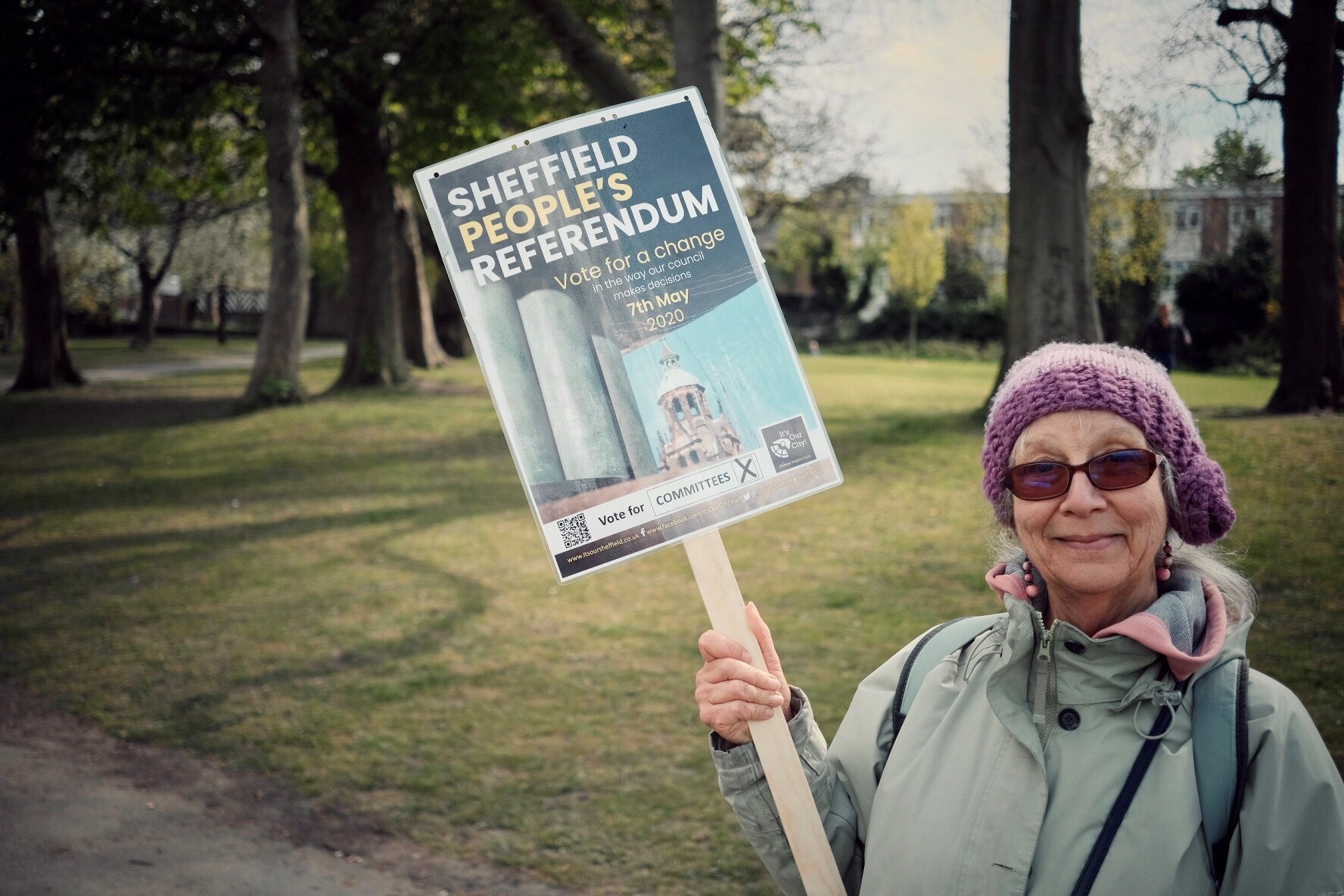Sheffield's governance referendum: a quiet revolution

Dr Richard Axelby (SOAS) draws from his ethnographic research into the politics of communication in Sheffield, to outline the uncertain electoral results arising from the 2021 May elections, namely its referendum. Dr Axelby reflects on the new 'committee system' will will guide the governance of Sheffield City Council following the successful referendum to change its governance structure.
Following the multiple electoral contests held on May 6th 2021, attention centred on the Scottish and Welsh Parliaments, the Hartlepool by-election, and the Mayoral races in West Yorkshire, Manchester and London. Though the local elections in Sheffield may not have caught the headlines, the potential for political realignments, in and beyond the city, are no less dramatic. Sheffield as a city has always been quietly radical: the vote on the 6th of May unseated the City Council’s leader, threw the council into ‘no overall control’, and brought an end to the model of council governance that has been the norm in England since the early 2000s. Let’s look at each of these ruptures in turn.
The Leader. After 10 years as a Labour councillor and five months in charge of the city, council leader Bob Johnson lost his Hillsborough seat to the Green Party candidate. Within 24 hours, Labour’s remaining council members had selected Cllr Terry Fox as their new leader. But this decision was contested: already a petition is circulating among Sheffield’s Labour membership demanding that the next Labour Group leader should be chosen by a ballot of all members. Whichever process is followed, ultimately, leadership of the council can only be confirmed by a vote of all city councillors. And that vote – usually a coronation – is suddenly wide open.
The Council. Cllr Bob Johnson was not the only Labour councillor to lose his place on the council: the Green Party picked up five seats, the Liberal Democrats took three, and there was a surprise result for the Conservatives who won their first council seat in Sheffield for over a decade. This left Labour with 41 councillors, the Lib Dems with 29, the Greens 13 and the Conservatives one. Negotiations over possible coalition agreements will likely be complicated by the residual bitterness from protests over the felling of Sheffield’s Street Trees. And whatever arrangement the parties eventually settle on, the system by which the city is governed is set to be upended.
The Governance Referendum. In August 2019, a petition was submitted to the council asking for a referendum on the council's governance system. The petition, organised by the Sheffield community group It's Our City!, was signed by over 26,000 people. Under the provisions of the Localism Act 2011, the council was thereby required to hold a referendum offering a choice between the existing ‘strong leader and cabinet’ model of governance, or to move to a committee system. Postponed from May 2020 (due to the Covid-19 lockdown), the referendum was eventually held alongside the 2021 local council elections. Bob Johnson – Sheffield’s strong leader who appointed the cabinet – argued that the committee system would leave Sheffield crippled economically and politically causing the city to fall further behind Leeds and Manchester. The small but passionate band of campaigners from It’s Our City disagreed. On a shoe-string budget, and without the campaigning infrastructure available to political parties, these volunteers spread their message of change by holding ‘community conversations’ in Sheffield’s many parks and open spaces. And it worked: the people of Sheffield voted by 89,670 votes to 48,727 to reject the existing executive arrangement and change to a system of local government run by committees. The Lib Dem leader called the result ‘fantastic’, a Green party spokesperson was said to be ‘delighted; Labour’s Terry Fox viewed the referendum vote as "a positive opportunity to improve how the council works".
The decisions made by voters on May 6th 2021 have left Sheffield without a leader, with no party in overall control, and committed by law to a radical overhaul in the way the council makes decisions. With the modern committee system, Sheffield moves into uncharted territory: no comparable English city has been compelled by a referendum to change its governance model. Formal power and authority will now lie with the full council. Committees of councillors drawn proportionately from all parties will now make decisions and determine strategy. But how will this work in practice? It’s up the 84 council members, split between four parties, to determine how the new system will operate. The effectiveness of any new arrangement will be determined by the willingness of the councillors and council officials to adapt, compromise and reach across entrenched divides.
The possibilities are exciting, and no-one can be certain what the results will be. Being the first to undertake this experiment with local democracy means that lots of eyes will focus on what happens next. Quietly radical Sheffield has shown the way, might others follow?
Dr. Richard Axelby is a Senior Research Fellow in the Department of Anthropology at SOAS. His current research compares political communication in the UK and India as part of the ERC funded programme 'A Global Comparative Ethnography of Parliaments, Politicians and People: representation, relationships and rupture’. He tweets at: @RAxelby
You can listen to a previous seminar he delivered at the CDE on the basis of this ongoing research here.
Photo copyright: Dr Richard Axelby.
